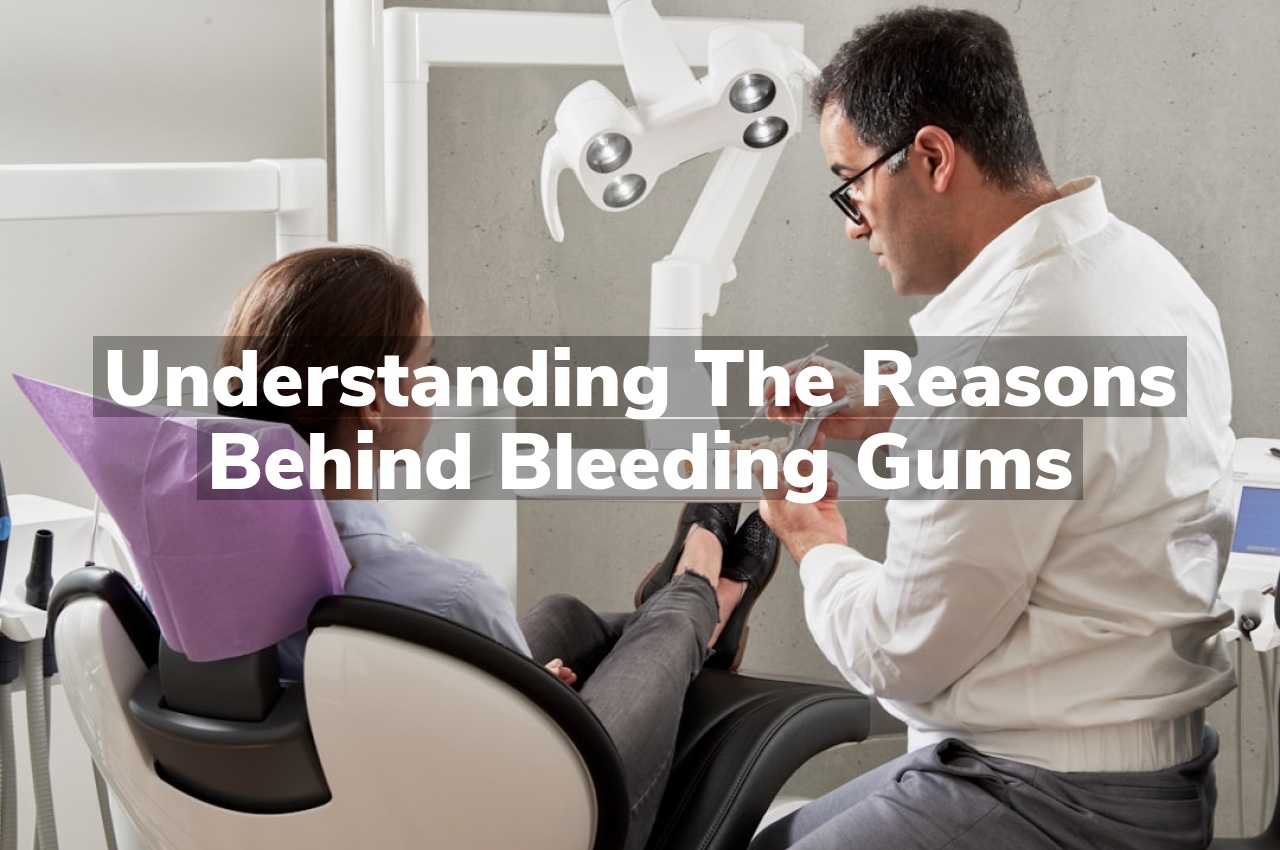Have you ever wondered why your gums bleed when you brush or floss? Understanding the reasons behind bleeding gums is crucial, as it can be a sign of various underlying health conditions ranging from gum disease to nutritional deficiencies. Identifying the cause is the first step towards addressing this common yet concerning issue.
Common Causes of Bleeding Gums
Bleeding gums can be a sign that there is something not quite right with your oral health. One of the most common causes is the buildup of plaque at the gumline. If not removed through regular brushing and flossing, plaque can harden into tartar, leading to inflammation and bleeding of the gums, a condition known as gingivitis. Another prevalent reason for bleeding gums is improper brushing or flossing techniques. Using too much force or a hard-bristled toothbrush can irritate or damage your gums, causing them to bleed.
In some cases, bleeding gums can also be a symptom of more severe health conditions. For instance, periodontitis, an advanced stage of gum disease, can lead to the gums pulling away from the teeth and forming pockets that may bleed. Additionally, certain medical conditions, such as diabetes and vitamin deficiencies, can also contribute to this issue. It’s also worth noting that specific infections affecting the mouth, like trench mouth, can lead to severe gum bleeding and pain. For more detailed information on this particular condition, consider reading Exploring Trench Mouth: Causes, Symptoms, and Treatments. Understanding the underlying cause of bleeding gums is crucial for addressing the problem effectively.
Link Between Diet and Gum Health
The health of our gums is more intricately connected to our diet than many might assume. A balanced diet rich in vitamins and minerals plays a crucial role in maintaining gum health, as it supports the body’s immune system and its ability to fight off infections that could lead to gum disease. Conversely, a diet high in sugar and processed foods can contribute to the buildup of plaque and tartar, exacerbating the risk of gum inflammation and bleeding. Understanding this connection is vital for anyone looking to maintain optimal oral health.
While the relationship between diet and gum health is complex, it underscores the importance of considering our nutritional choices as part of our overall health strategy. Just as our diet can influence our weight, heart health, and energy levels, it also has a significant impact on the health of our gums.
Stress Impact on Oral Health
Stress is a prevalent factor that significantly affects various aspects of health, including oral health. When individuals experience high levels of stress, it can lead to a range of oral health issues, one of which is bleeding gums. The connection between stress and oral health is complex and involves various physiological responses that can compromise the body’s ability to maintain healthy gums. Understanding the intricate relationship between stress and oral health is crucial for recognizing the broader impacts of stress on the body’s overall well-being.
Hormonal Changes Affecting Gums
Hormonal changes in the body can significantly impact the health of your gums, leading to symptoms such as bleeding. These fluctuations commonly occur during puberty, pregnancy, menstruation, and menopause. During these periods, increased hormone levels can make the gums more sensitive to inflammation and bleeding. Understanding how hormonal changes affect your gums is crucial for maintaining oral health. For those seeking professional dental care, South Cary Dental is a trusted Cary Dentist, committed to providing quality oral health services.
Importance of Regular Dental Check-ups
Regular dental check-ups play a crucial role in maintaining oral health and preventing various dental issues, including bleeding gums. These routine visits allow dental professionals to assess the health of your gums, teeth, and mouth, identifying any early signs of problems that could lead to more serious conditions if left untreated. By ensuring that you adhere to a schedule of regular dental examinations, you are taking a proactive step toward safeguarding your oral health and overall well-being.
Conclusion
For further inquiries, don’t hesitate to call us at (919) 866-3200 or read our reviews on Google Maps.

